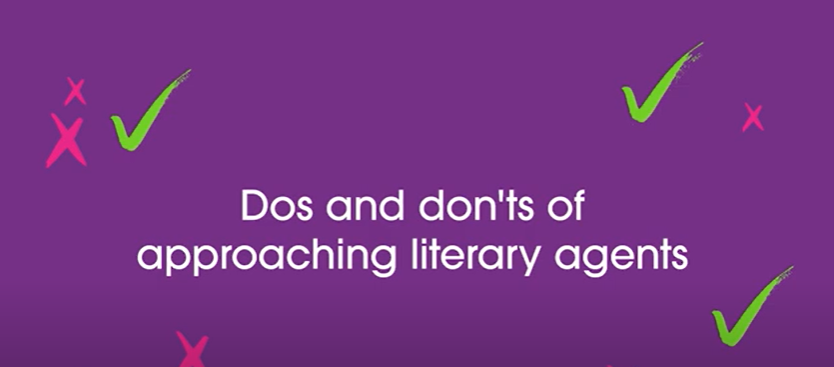
How to Write a Book Pitch That Grabs Attention
March 18, 2025
Writer Beware! How to Avoid Publishing Scams
March 25, 2025Many aspiring authors pour their heart and soul into a book, spending months or even years refining their work, only to feel ashamed and demoralized when their dream seems out of reach. The fear of rejection can leave them feeling desperate, leading them to take a shotgun approach sending out mass query letters in hopes that one agent will bite. But without knowing how to find literary agents, this approach rarely works.
Instead of relying on a numbers game, it’s crucial to target the right agents, those who actively sell similar books. Crafting a personalized pitch not only improves odds but also demonstrates professionalism. Many writers struggle with the idea of knocking on endless doors, believing it’s the only way forward, but a well thought out plan ensures each effort is logical and increases the chances of success. If you want to avoid feeling horrible about wasted time and effort, focus on sending targeted queries—ones that make a real impact and help you move toward your publishing goals.
Querying the wrong agent is like using a lazy tactic in dating just as you wouldn’t send the same generic messages to every profile on Match.com, you shouldn’t blast identical query letters to every publishing contact.
A low effort approach makes you look desperate, much like those who mindlessly swipe online hoping to find The One without real effort. In my experience as a magazine editor, I received countless pitches from freelance writers and publicists who had no clue about our readers or sections, and their emails went straight to delete. Similarly, agents ignore queries that show no understanding of their interests.
If you craft a story that aligns with their focus, you increase your chances of getting noticed. Think of pitching like marriage you want a real connection, not a random analogy that doesn’t fit. Avoid the mistake of being the creepy internet person; instead, be a pro and approach querying with precision.
Find Literary Agents Using 7 Simple Steps
Step 1: Understand Where Your Book Fits in the Publishing Industry
Before sending a query to agents, it’s crucial to define your book and its genre—whether it’s a thriller, cozy mystery, noir, or historical fiction. Knowing whether it leans towards literary fiction, commercial fiction, or upmarket stories helps you recognize the right industry fit. Marketing categories can feel artificial and frustrating, but they guide research on who might best represent your work. Consider the tone: is it gritty, inspirational, philosophical, funny, or even irreverent
Identifying authors with a similar style or topic gives clarity. If your setting or elements are unique, certain agents may be drawn to them. Think about where your book sits on the spectrum between literary and commercial would it compare to Love Me Anyway, known for its dark, funny, women’s fiction that sits on the border of both? Finding the right match can leave you stoked, while choosing the wrong one could feel like chasing a cotton-candy dream with unrealistic happy endings. Stay focused, and make effective choices to avoid wasting steps in the wrong direction.
Step 2: Identify Agents Interested in Your Type of Book
Finding the right agents is not just about numbers it’s about strategy. Instead of blindly pitching, focus on a laser-targeted list of professionals who have successfully sold books in your genre with a similar tone, theme, and style. Just like readers carefully curate their bookshelf based on personal taste, agents also have preferences.
A bestselling crime novel can vary significantly in approach one might be dark and gritty, while another leans towards light and witty. Research their sales records, webpages, interviews, and profiles to ensure alignment. If your book is funny and inspirational, avoid those focused on literary, political novels, as they likely won’t connect with your work. A well-matched agent will recognize the value in your writing, increasing your odds of success while saving you emotional energy in the querying process.
Step 3: Use Our Service to Get the Most Relevant List of agents for You
One of the smartest investments you can make in your self publishing journey is hiring Penman International as the go-to resource for all publishing industry professionals, including agents, editors, publishers, and booksellers. Unlike Writer’s Market, which you may have used before, we’ll give you direct access to sales records, giving you unparalleled insight into which agents are actively closing deals in your genre.
Beyond agent research, you’ll receive industry news and analysis, helping you understand market trends and proving that debut novels are being sold all the time. While its search functionality may not be the most refined, making sifting through data a bit tedious, no other resource offers this level of comprehensive insight into agent activity.
Step 4: Shortlist the Best Agents for Your Book
Once you’ve gathered a rough list, it’s time to dig deeper and find agents who have successfully sold books like yours. Resources like Writer’s Digest and Manuscript Wish List (MSWL) can help refine your search. While Writer’s Digest, particularly Chuck Sambuchino’s Guide to Literary Agents, offers interviews, queries that worked, and highlights new agents actively seeking submissions, it’s best used as a secondary tool rather than a starting point.
Similarly, Manuscript Wish List originally a Twitter hashtag that evolved into a website features agent profiles detailing what they’re looking for. Though it doesn’t have as many listings as other platforms, those who are featured are actively seeking pitches from new writers. However, both resources require patience, as they aren’t the most efficient way to begin your search. But here’s the truth: if you expect an agent to invest time in your book, you must be willing to put in the effort to find the right match. The process may seem daunting, but it’s worth it. If you need a shortcut, check out a curated list of the top 107 agencies in my Epic Guide to Publishers and Literary Agencies.
Step 5: Write Personalized Query Letters
When you pitch an agent, it’s crucial to personalize your query letter. Let them know exactly why you’re reaching out to them and why your book is a great fit for their list. This approach not only highlights your book as something they would love, but it also positions you as a professional in their eyes.
To learn more about how to craft the perfect query, check out my post on How to Write a Query Letter That Wows Agents. Here’s a real-life example: my client, Robert Kerbeck, had been sending out dozens of queries without any response. After working together on creating a highly targeted list of agents, he sent out just 12 personalized queries and received 7 manuscript requests in just two weeks a 58% request rate on the same book! This targeted approach eventually led him to secure an agent, a book deal, and even have Penguin Random House label his book as one of their most anticipated.
While some agents believe personalization isn’t necessary, I believe it’s a game changer. The more customized your approach, the more likely you are to get noticed. Just as marketers tailor ads to fit customer needs, you can research agents, understand their tastes, and personalize your pitch to maximize your chances of landing The One. This will not only increase your odds of success but also make writing your query letter much simpler.
Step 6: Send Query Letters in Batches to Agents
When sending query letters to agents, it’s essential to aim for sending about 15 queries per batch. Sending them one at a time is too slow, and unless someone has requested an exclusive, multiple submissions are understood. However, sending more than 15 at once could lead to an ineffective query. Once you’ve sent your first batch, if no requests for partials come in within six weeks, it’s likely there’s an issue with your query (though not necessarily with your book).
If you receive many requests for partials, but no full manuscript requests after another six weeks, it indicates your query is strong but the opening chapters need some attention. Similarly, if agents are excited about the partial, but don’t fall for the whole book, it’s time for a revision. Collect any feedback you’ve received and trust your instincts, as your gut will guide you in deciding whether a revision is necessary or if you should continue pitching. Once your book is ready, it’s time to go back to kissing frogs with that stellar query!
Step 7: Follow Up
You might not hear back from agents right away, and that’s completely normal. But, don’t skip the crucial step of following up! Some people will say not to follow up because it’s pushy or assume that silence always means no, but silence doesn’t necessarily mean no. In fact, think about your own life how many times have you gotten a follow-up and realized, “Oh, yes, that’s right. I do want to [buy that thing, sign up for that class]”? Agents are human too, and they sometimes need a little reminder. I know from experience that a polite follow-up can make a huge difference.
For example, I once had a client who was feeling rejected after not hearing back from his dream agent. I convinced him to send a follow-up, and within hours, he received this response: “Thanks so much for checking in. Yes, I’d love to read the full manuscript! You beat me to it… You are such a talented writer. I greatly appreciate your following up. I am looking forward to it.” Can you imagine what would have happened if he hadn’t followed up?
Another client made revisions to her manuscript but heard nothing back. She assumed the worst, but I encouraged her to follow up. It turned out the agent’s mother had passed away, and she had been away from work. When she returned, the two signed together. And a writer I know checked back with an agent six months after submitting her manuscript, only to find out that the agent had gone on maternity leave. The agent quickly requested the manuscript again, and they’ve been working together ever since.
While silence often signals a no, following up is always worth it. Don’t worry about being too pushy a short, polite email won’t upset anyone. If an agent does get upset by a two-sentence email, you’ve learned something valuable about them early on. Always follow up; it might be the step that gets your manuscript noticed.
Find Literary Agents & Get Your Book Published
Finding the right literary agent isn’t just about sending out mass queries—it’s about strategy, precision, and persistence. By understanding where your book fits in the market, researching agents thoroughly, and crafting a compelling pitch, you can dramatically increase your chances of securing representation.
At Penman International, we take the guesswork out of the process by providing targeted agent lists, expert query letter guidance, and personalized support to help you navigate the publishing world with confidence. Instead of wasting time on ineffective queries, let us help you make meaningful connections that bring you closer to your publishing dreams. Get started today and take the next step toward getting your book into the right hands!



